RV tank heaters can be one of the most important pieces of equipment on board your recreational vehicle – but how can you be sure it’s functioning properly? To give you peace of mind that your RV tank heater is in perfect working order, it’s best to check it regularly. This blog post will go through a few quick and easy ways to tell if your RV tank heater is working as it should. So, don’t wait – follow these tips to make sure your RV tank heater is up to scratch!
Table of Contents
What Are Tank Heaters in RV and What Do They Do?
Tank heaters in an RV are a great way to keep your tanks from freezing during cold weather. They work by using electrical heating elements that wrap around the water and waste tanks of your motorhome and help keep them at a temperature above freezing. This can be especially useful when you plan on leaving your RV parked for long periods, as it will ensure that the tanks stay above freezing temperatures, preventing any water or waste from becoming frozen and clogging up your plumbing system. It can also help keep your tanks from expanding due to freezing temperatures, which can cause them to crack and leak. Tank heaters are a great way to keep your RV safe in cold weather, and they come in many different sizes and styles so you can find one that fits your RV’s particular needs.
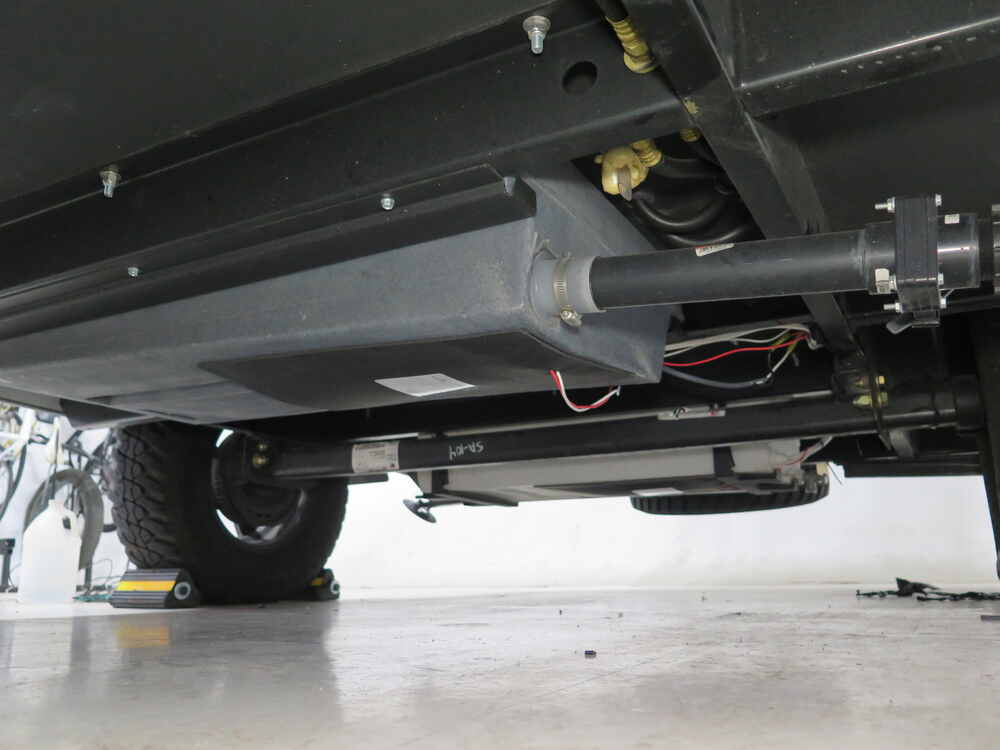
There are several different types of tank heaters available on the market, including those that are built into the tanks themselves and those that can be purchased separately. The type of tank heater you choose will depend largely on how cold it gets in your area, as well as what type of RV you have. If you plan on keeping your RV parked for extended periods, it is recommended to choose a tank heater that is built into the tanks themselves, as this will provide more consistent heating. However, if you are just looking for occasional protection from freezing temperatures, then purchasing a separate tank heater may be sufficient.
No matter what type of tank heater you decide to purchase, make sure to read the instructions carefully and follow all safety precautions. If you have any additional questions or concerns about your tank heater, it is always best to consult with a qualified professional. With proper care and maintenance, your tank heater can help protect your RV from freezing temperatures and ensure that you have a safe and enjoyable camping experience [1].
How to Know If Tank Heaters Are Working?
Checking them overnight
You should check the tank heaters overnight to make sure they are working properly. This is especially important during the winter months when temperatures get colder. If you notice that your tank heater is not keeping up with the cold outside temperatures, it may be time to replace it. Alternatively, if your tank heater is running continuously for long periods, it could be a sign that it is not working correctly.
Using an amp meter
You can use an amp meter to check the coil in your tank heater and make sure it is working correctly. The reading should be between 5 and 8 amps. If it is higher than this, then the coil may not be functioning properly. You can also look for signs of corrosion on the metal parts of your tank heater, which could indicate that there is a problem with the circuits or wiring.
Checking the thermostat
If you suspect a problem with your tank heater, it is important to check the thermostat. This can be done by turning up the heat and waiting for it to come on. If it does not come on after several minutes, it may indicate that there is an issue with the thermostat. Alternatively, if the tank heater turns on and off too frequently, it could be a sign that there is an issue with the thermostat setting.
Inspection of the wiring
The wiring of your tank heater should also be inspected regularly to make sure it is in good condition. If you notice any frayed wires or exposed connections, they may need to be replaced. Additionally, it is important to check that all the wires are securely connected and not corroded.
Lights and indicators
Most tank heaters will have lights or indicators which can be used to indicate whether they are working correctly. If the light is off, it could mean that there is an issue with the wiring or circuit. Alternatively, if the light is on when you turn up the heat, but then turns off after a few minutes, this could be a sign of a faulty thermostat setting.
Getting checked by a professional
If you are worried that there might be a problem with your tank heater, it is best to have it checked out by a professional. They can inspect the wiring and components of the heater and diagnose any potential issues. If any repairs or replacements are needed, they can do this for you as well. This will ensure that your tank heater is working correctly and efficiently so you can keep your tanks warm and safe [2].
When Should You Replace Tank Heaters in RV?
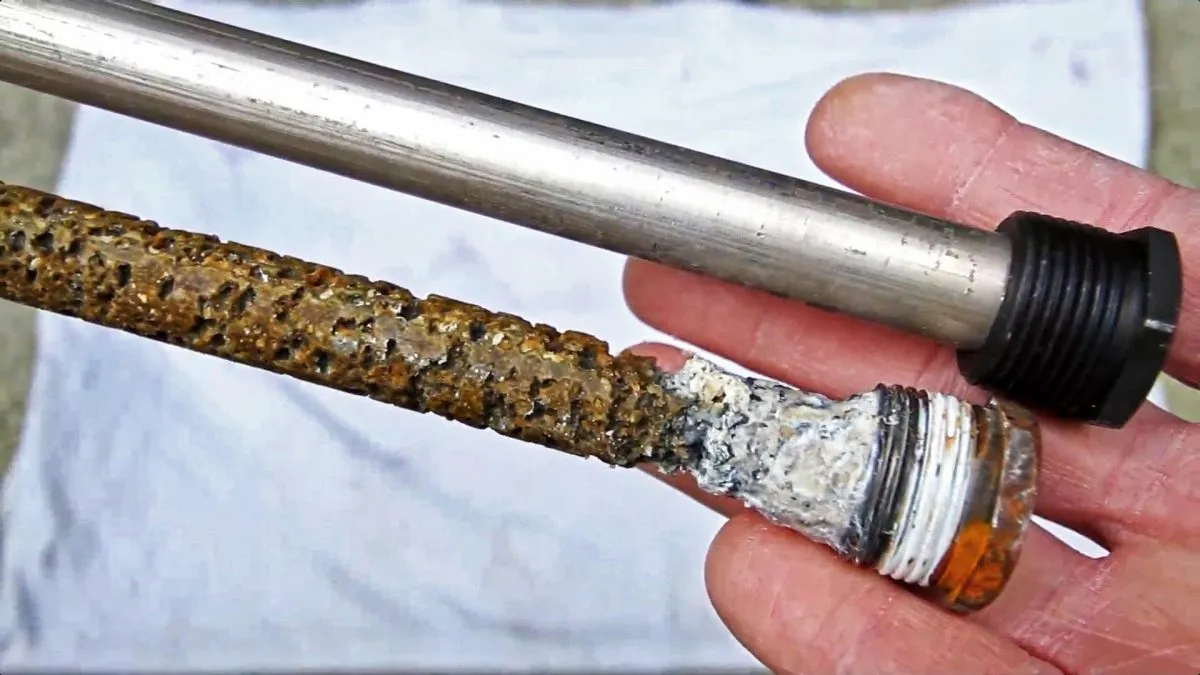
Loose Adhesive
If you notice that the adhesive holding your tank heater is coming loose, it may be time to replace it. This can be a sign of age or wear and tear on the heater, which could indicate that it is not as efficient as it once was. Additionally, if you find any cracks in the tank itself, this could mean that the cooler air is leaking out and that it is time to get a new one.
Malfunctioning Parts
If certain parts of your tank heater are not working as effectively as they once were, it may be time for a replacement. This could mean that the thermostat needs adjusting or that the wiring needs to be checked out. It is important to investigate these issues and make sure that your tank heater is in top condition.
Slow to Heat Up
If it takes a long time for your tank heater to heat up, it could be a sign that the insulation or wiring is not as efficient as it should be. This can drastically reduce the efficiency of your tank heater and may mean that you need to replace it. In this case, it is important to investigate the source of the issue and get a new tank heater if necessary.
Noisy Operation
If you hear unusual noises emanating from your tank heaters, such as a grinding noise or high-pitched whine, it could be time for a replacement. This could indicate that there is an issue with the wiring or components and that it is not working correctly. It is important to get this checked out by a professional as soon as possible so that you can replace your tank heater if necessary.
Damaged Wiring
If you find that the wiring of your tank heater is damaged, it could mean that it is no longer functioning properly. It is important to check the wires for cracks or corrosion and get them replaced if needed. If this does not solve the issue, then it may be time to invest in a new tank heater.
Age of Heater
Finally, it may be time to replace your tank heaters if they are getting older and starting to show signs of wear and tear. If you are unable to fix the issue or if the heater is no longer efficient, it may be time to replace it with a newer model. This will ensure that your RV is running optimally and that your tanks can stay warm and safe for years to come.
How Do You Keep Tank Heaters in Great Shape?
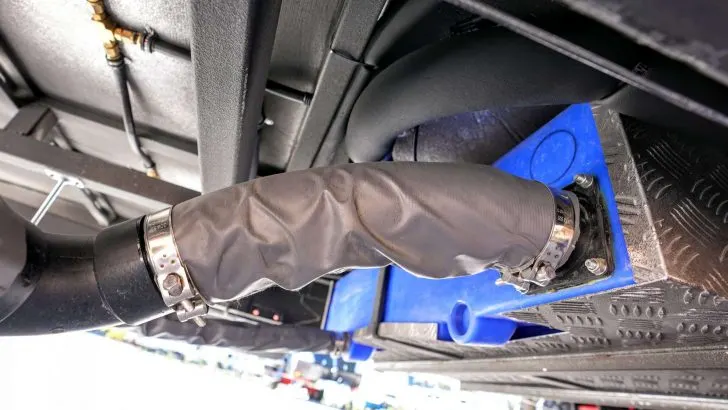
Cleaning and Maintenance
It is important to regularly clean and maintain your tank heaters so that they can continue to work efficiently. You should make sure to clean the outside of the heater with a damp cloth, removing any dirt or debris that may have accumulated over time. Additionally, you should ensure that all the wiring is securely connected and in good condition.
Checking the Thermostat Settings
The thermostat of your tank heater should also be checked regularly to make sure it is functioning correctly. If you notice that the heat is not coming on when you turn it up, or if it cycles on and off too frequently, then it may be time to adjust the thermostat settings.
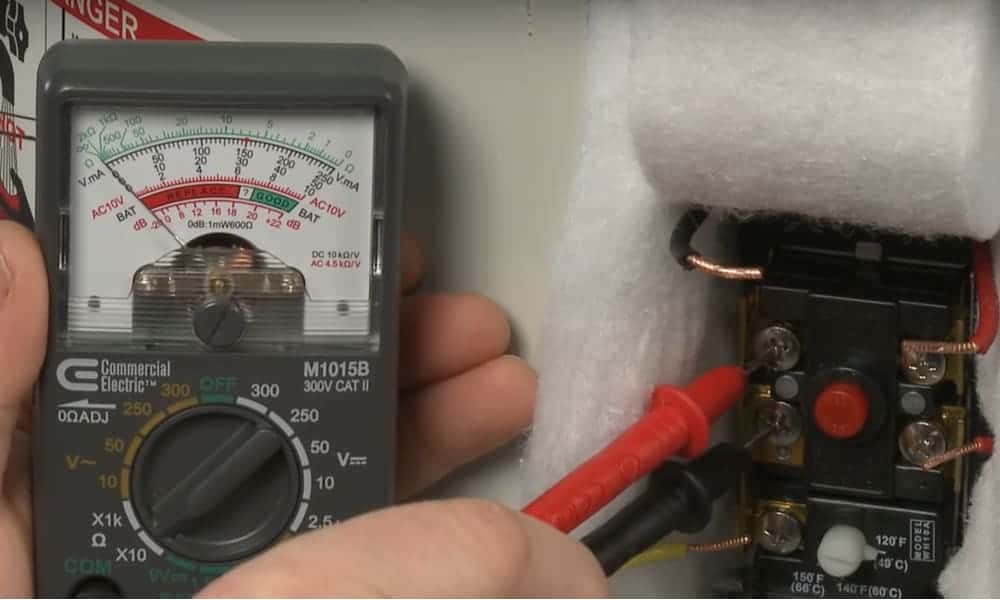
Inspecting the Coils and Wiring
The coils of your tank heater should also be checked regularly for signs of corrosion or damage. If you notice any frayed wires, exposed connections, or signs of burning on the metal parts, these may need to be replaced. Additionally, it is important to make sure that all the wiring is securely connected and that any connections are in good condition.
Storing Properly When Not In Use
When your tank heater is not in use, it is important to store it properly so that it does not get damaged or corroded during periods of non-use. Make sure to keep the unit out of direct sunlight and away from any moisture so that it does not experience any unnecessary wear and tear. Additionally, it is best to keep the tank heater in a cool and dry place when not in use.
Replacing When Necessary
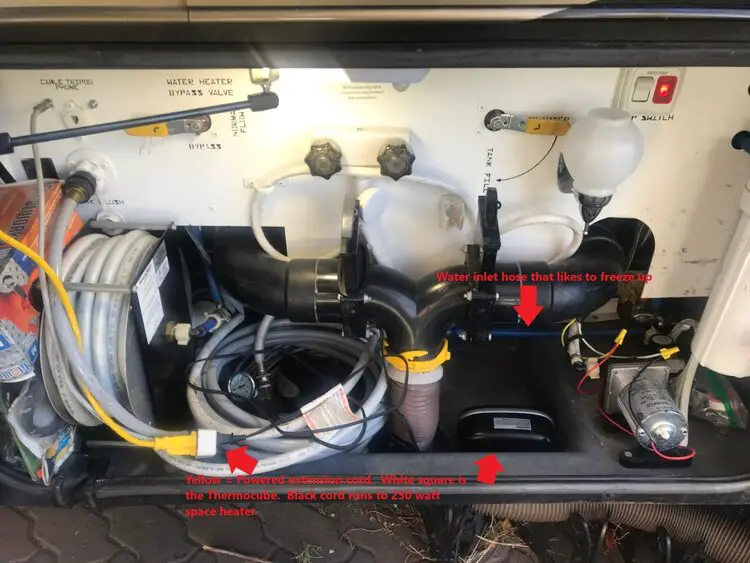
Finally, if your tank heaters are no longer efficient or safe to use, it may be time to replace them with newer models. This will ensure that your RV is running optimally and that your tanks can stay warm and safe for years to come. Additionally, replacing tank heaters when necessary will help you save money in the long run as you won’t have to constantly repair or replace them.
FAQs
How often should I check my tank heaters?
You should inspect your tank heaters at least once a month, or more frequently if you notice any signs of wear or damage. Additionally, it is important to make sure that the thermostat settings are adjusted correctly and that the wiring is securely connected.
Do I need to replace my tank heater if it is no longer efficient?
Yes, if your tank heaters are no longer working efficiently or safely, then it may be time to invest in a new one. This will ensure that your RV is running optimally and that you can keep your tanks warm and safe for years to come.
What should I do if my tank heater is making unusual noises?
If you hear any grinding or high-pitched noises emanating from your tank heaters, it may be time to get them checked out by a professional. They will be able to investigate the source of the issue and advise you on whether it needs replacing or repairing.
How often should I clean my tank heaters?
You should make sure to regularly clean the outside of your tank heater with a damp cloth, removing any dirt or debris that may have accumulated over time. Additionally, it is important to inspect the wiring and coils for signs of corrosion or damage. If you notice any frayed wires or exposed connections, these should be replaced as soon as possible.
What is the best way to store my tank heaters when not in use?
When your tank heaters are not in use, it is important to keep them stored safely and away from direct sunlight and any sources of moisture. Additionally, it is best to keep the tank heater in a cool and dry place when not in use. This will help to prevent any unnecessary wear and tear or corrosion.
Can I leave my RV tank heater on all the time?
No, it is not recommended to leave your RV tank heater on all the time. Doing so can increase your energy costs and cause unnecessary wear and tear on the unit. Additionally, leaving the tank heater on constantly could be a fire hazard. It is best to only turn the unit on when you need it and then turn it off again as soon as it has finished doing its job.
Do all RVs have water tank heaters?
No, not all RVs have water tank heaters. Some models may come equipped with a heating element that keeps the tanks warm, while other models may not have this feature at all. Additionally, some RV owners choose to install a tank heater if their model does not come with one already installed. If you are unsure whether your RV has a tank heater or not, you should consult your RV’s manual or contact the manufacturer for more information.
How many types of tank heaters are available in RVs?
There are a variety of different types of tank heaters available for RVs. Some models may come equipped with electric heaters, while others may use propane or gas to heat the tanks. Additionally, some tank heaters use solar power to keep the water warm and safe. Depending on your RV’s needs and budget, you can choose the type of tank heater that best suits your needs.
What are the benefits of using a tank heater in my RV?
Using a tank heater in your RV offers numerous advantages. Having warm water available whenever you need it can make camping much more enjoyable, while also helping you conserve energy by not having to heat up large amounts of cold water. Additionally, tank heaters can help to extend the life of your RV’s water tanks by preventing them from freezing in cold weather. Finally, having a tank heater can also help to keep your RV pipes and fixtures free from damage due to corrosion or other wear and tear.
Are there any downsides to using an RV tank heater?
Using a tank heater in your RV does come with a few potential downsides. Some tank heaters can be quite expensive if you choose to purchase a higher-end model, and they may also require periodic maintenance or repairs. Additionally, some tank heaters may not be very energy efficient, so you may see an increase in electricity costs if you leave them on for long periods.
Useful Video: How to Start & Use an RV Water Heater
Conclusion
Tank heaters are an essential part of any RV owner’s toolkit and it is important to take good care of them. You should make sure to regularly clean and maintain your tank heaters, inspect the thermostat settings, check the coils and wiring, store them properly when not in use, and replace them when necessary. Following these tips will ensure that your RV tank heaters are running optimally and keeping your tanks warm and safe for years to come.
References:
- https://www.ultraheat.com/post/how-to-tell-if-your-rv-tank-heaters-are-working
- https://vehq.com/how-to-tell-if-rv-tank-heaters-are-working/

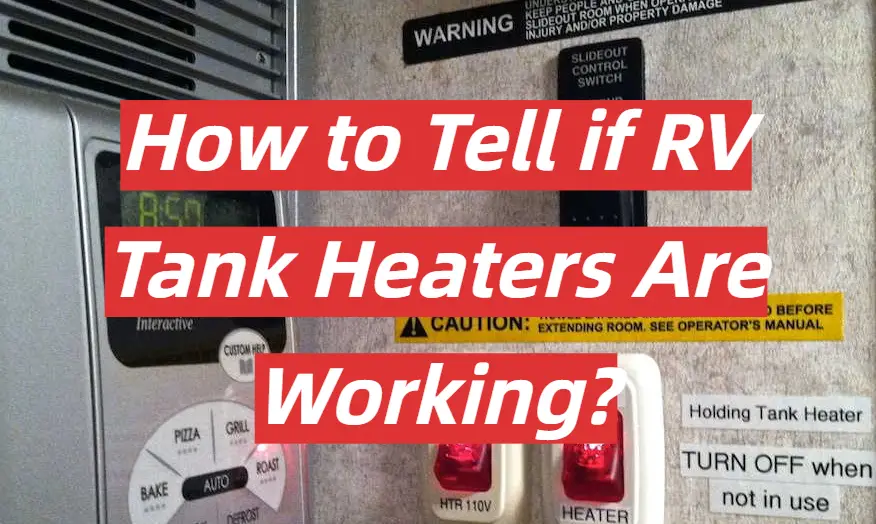
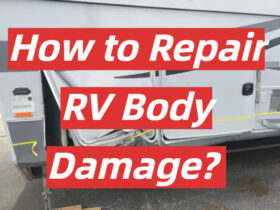

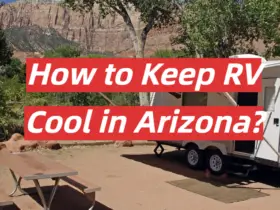
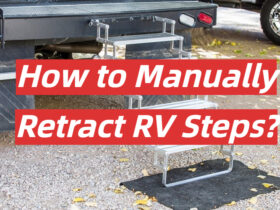
Leave a Reply